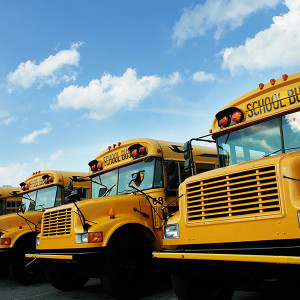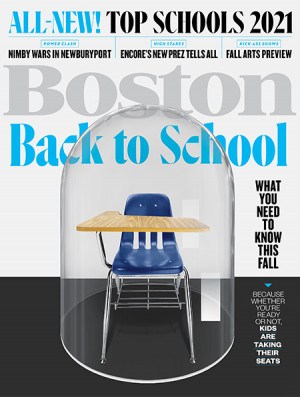Massachusetts Board of Education Votes against Arming Teachers
The Board of Elementary and Secondary Education unanimously approved a proposal that bucks President Trump's call for additional firearms in schools.

Photo via AP/Rick Bowmer
Signs bearing messages like “trained to be a teacher, not a sharpshooter” and “give teachers raises, not guns,” dotted Boston Common on Saturday during the March for Our Lives, and this week, the state Board of Elementary and Secondary Education voted in support of such sentiments.
On Tuesday, the board unanimously approved a resolution that opposes arming classroom teachers in Massachusetts. The vote is primarily symbolic in nature and follows President Trump’s calls to increase school safety and security by giving teachers firearms. State Education Secretary Jim Peyser said during the board meeting that such proposals are “symbolic, ineffective, and, I’m afraid, ultimately irresponsible.”
In the wake of the massacre at Marjory Stoneman Douglas High School in Parkland, Florida, the White House committed to assist districts in training teachers to use firearms. The administration’s position has been skewered by gun violence experts like Dr. David Hemenway of the Harvard School of Public Health, who told NBC News the plan is “crazy.”
A recent poll indicates Massachusetts voters approve of strengthening gun laws in the Bay State, which already boasts some of the tightest regulations in the country. Massachusetts also has one of the lowest per capita rates of gun deaths nationwide.
Though panned in Massachusetts, the idea of arming teachers has gained ground elsewhere. The Kansas legislature is considering a proposal to hold schools that ban teachers from carrying weapons legally responsible should tragedy strike. And educators in rural districts in states like Texas and Ohio are already armed.
At Tuesday’s meeting, Peyser said that a teacher’s role is multifaceted, particularly as it relates to students’ well-being, but arming amateurs is not a wise step.
“Teachers play a critical role in ensuring school safety, but in particular ways,” Peyser said. “They are first and foremost part of a team that’s responsible for creating school cultures that are supportive and caring. … They’re also responsible in the case of … an emergency of any kind for leading their students in that time of crisis. Any distraction from that is potentially harmful for the students that are in their charge.”

